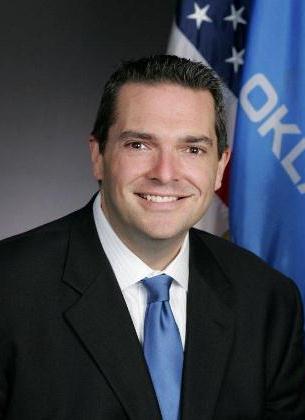In order to provide equal access and equal opportunity to people with diverse abilities, this site has been designed with accessibility in mind. Click here to view
Voluntary ‘Clean Air in Restaurants Act’ Wins Senate Approval
 Sen. Clark Jolley
Sen. Clark Jolley
On a bipartisan vote of 38 to 8, the full Senate on Wednesday gave its approval to a voluntary measure aimed at persuading more Oklahoma restaurants to go smoke-free. State Sen. Clark Jolley, R-Edmond, and Rep. Kris Steele, R-Shawnee, are authors of the “Clean Air in Restaurants Act.” Jolley explained the goal of House Bill 2774 is to provide restaurants with financial incentives to go completely smoke-free by 2012.
In 2003 Oklahoma enacted a law declaring that by 2005, restaurants either had to go completely smoke-free or create separate smoking areas. Efforts to make all restaurants nonsmoking have been opposed because many restaurants had already invested funds in smoking areas as part of the 2003 law. Jolley explained HB 2774 is strictly voluntary.
“Under this measure, restaurants that currently have smoking areas and choose to go completely nonsmoking by the end of 2012 would receive a rebate from the Tobacco Prevention and Cessation Fund to cover part of that cost,” Jolley said. “The end result is that with the restaurants’ help, we can dramatically reduce secondhand smoke in Oklahoma, and thus improve the health of our citizens.”
According to the American Lung Association, secondhand smoke causes approximately 3,400 deaths from lung cancer and 22,700 to 69,600 deaths from heart disease each year. Nonsmokers exposed to secondhand smoke at work are at increased risk for adverse health effects. Levels of secondhand smoke in restaurants and bars were found to be two to five times higher than in homes with smokers and two to six times higher than in office workplaces. Workplace productivity was increased and absenteeism was decreased among former smokers compared with current smokers.
“In addition, in restaurants that have already chosen to go smoke-free, they actually saw profits increase,” Jolley said. “It creates a healthier environment for customers, for employees and its better for our economy.”
Jolley said HB 2774 now returns to the House for a final look, then should be sent on to Governor Brad Henry for his approval.
 Oklahoma Senate
Oklahoma Senate

